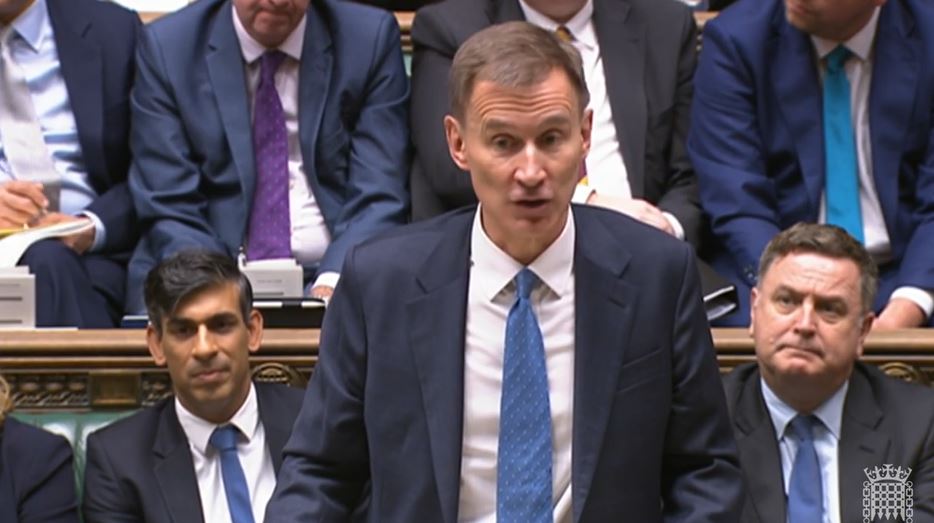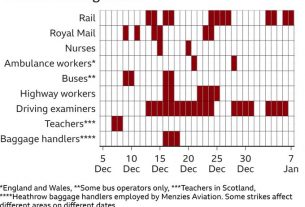The newspapers have given their verdict on Jeremy Hunt’s Autumn Statement with the traditionally Tory supporting press hailing tax cuts while those more critical of the government remind of the record tax burden and looming general election.
While not much is made of Hunt ditching the widely predicted slashing of inheritance tax, reaction is generally summed up by the Times’ frontpage declaring: “Hunt eases tax burden”; while the Financial Times states: “Tax burden surges despite Hunt cuts”.
The 2p cut to National Insurance was Hunt’s “rabbit pulled from the hat” moment, according to the Telegraph’s associate editor Camilla Tominey. That it is being brought forward to January 2024 prompts her to ask if “a May election could be on the cards?”
Tominey concedes that in cutting National Insurance for the employed and self employed Hunt “is only giving back a little bit of what he’s taking by continuing to freeze the tax rate bands” with the tax take set to hit 38% – a post-war record high – by 2029, according to the Office for Budget Responsibility (OBR).
Making full expensing permanent – described by the Daily Mail as the “biggest business tax cut since the 1980s” – must be countered with the 6% hike in corporation tax, argues Tominey.
She calls Hunt’s decision to freeze departmental spending in cash terms over the next five years as a “hospital pass” to shadow chancellor Rachel Reeves, should Labour prevail in the election. Reeves cannot be seen to tear up the fiscal rules designed to restore post-pandemic Britain’s economy if Labour want to claim being fiscally responsible.
Hunt’s tough stance on jobseekers combined with the higher than expected rise in benefits and to the national living wage “is also clever politics”, writes Tominey. For her, the moves disarm somewhat Labour’s attack-line that the Tories don’t help the poorest.
The Guardian called Hunt’s Autumn Statement a “Tory pro-rich tax giveaway” that’s being “paid for by bankrupting the state”.
Their editorial calls the chancellor’s plans “a desperate attempt to forestall public disillusionment with familiar polices that have become a recipe for disaster.”
Voters will be paying “record levels of tax” while facing lower living standards. The fact that the “performance in eight out of nine major public services has declined since 2010” should have given Hunt cause for reflection. Instead, the chancellor “doubled down”.
The biggest tax cuts since 1988 will be paid for by shrinking the “future state” so dramatically it “threatens to ‘bankrupt’ essential public services. The winners, are the “richest 20% of households” who “gained almost half the tax cuts”. Those in England’s south-east are the biggest of winners of all.
Elsewhere in its pages, the Guardian portrays the Autumn Statement as the starting pistol for the general election campaign with the rise in state benefits and pensions a clear appeal for votes.
Their analysis is shared by the Economist which called the tax cuts a “pre-election giveaway” that spells “an ugly future for public services”. It exposes Hunt’s claims about lower inflation giving space for tax cuts saying higher inflation has actually provided the tax revenue bonanza underpinning the tax cuts.
While emphasis and analysis differs between the papers, there’s almost unanimous agreement that the Spring budget will be make or break for the Tories.




